15 of the Most Bizarre Alien Species Featured in 'Star Trek'
"Star Trek" Aliens
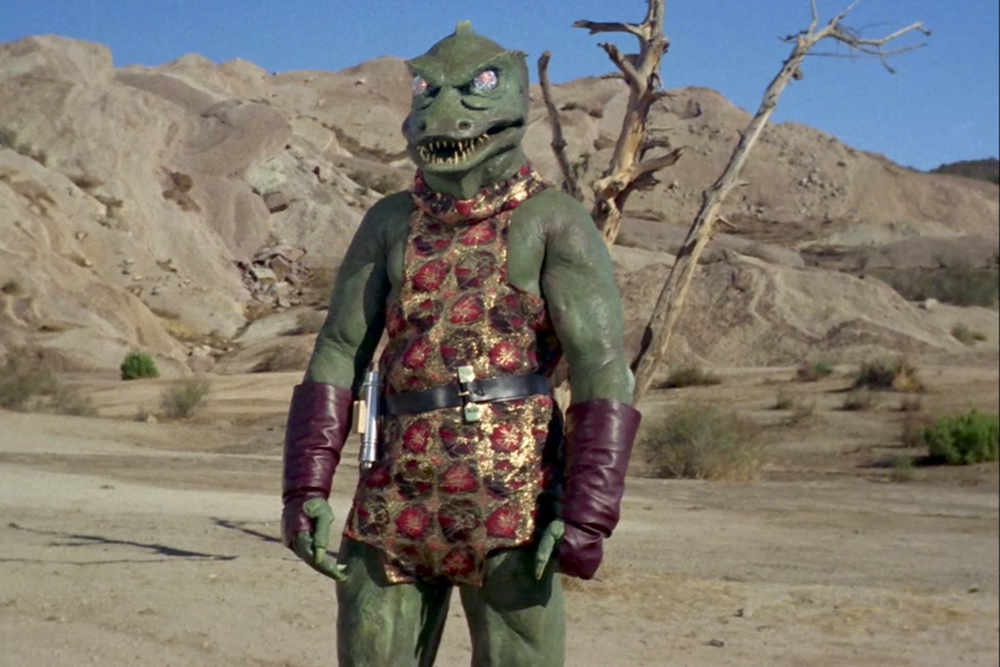
"Star Trek" is filled with unusual aliens, ranging from the humanoid to the crystalloid to the god-like. Here are some of the more unique species from the live-action "Star Trek" series. Please note: We deliberately exclude the more well-known alien races, and limit each of the series to three entries to try to include samples from across the canon. If we missed anything bizarre, tell us in the comments!
1. Salt vampire ("Star Trek: The Original Series," 1966-1969)
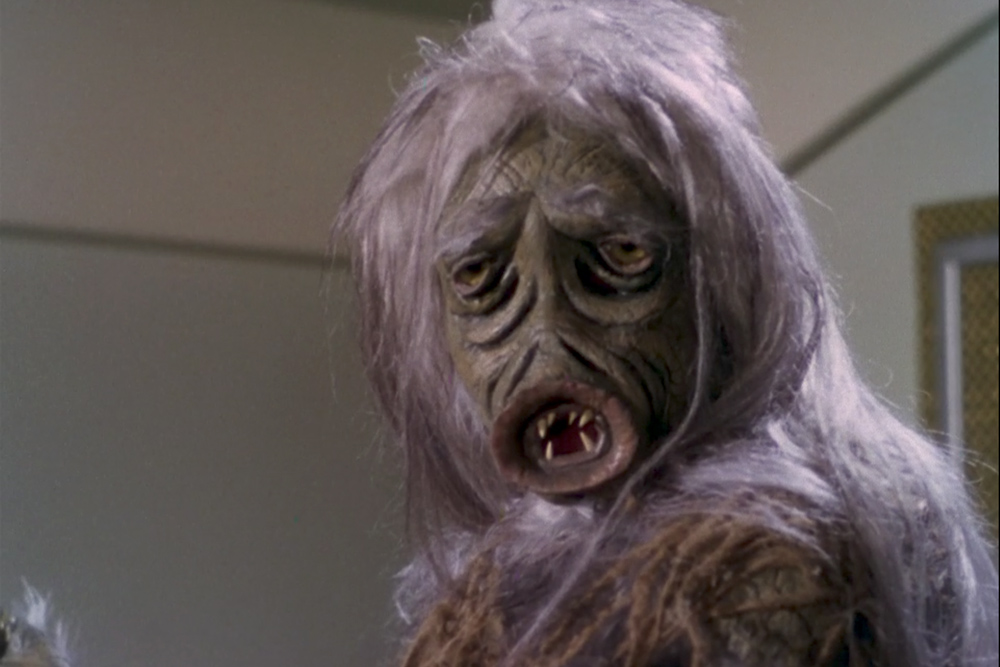
The very first episode of "Star Trek" showed promise when it came to weird aliens. An old flame of one of the crew members, Nancy Crater, turns out to be a projection of a sort of salt vampire that soon runs amok on the USS Enterprise. This alien species cannot live long without salt, so it attacks crew members and sucks them dry of essential salts. The creature is eventually stopped in part by a sort of mouse trap that — of course — uses salt. [What I Learned by Watching Every 'Star Trek' Show and Movie]
2. Horta ("Star Trek: The Original Series," 1966-1969)
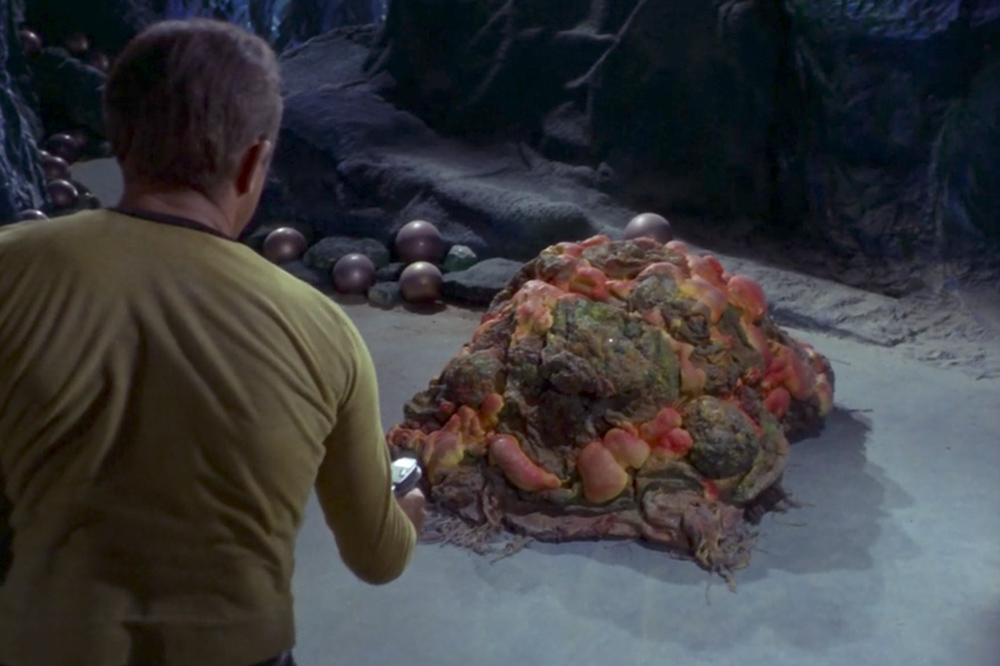
This is a species of silicon-based life (humans, by comparison, are carbon-based) that prefers to feed on rocks. In a moving episode, "The Devil In The Dark," the crew discovers that the aliens are actually intelligent and very loyal to their offspring — but only after the Vulcan alien Spock does a mind-meld with one of the creatures, which is being persecuted by miners angry at the destruction it has caused.
3. Gorn ("Star Trek: The Original Series," 1966-1969)

A member of this extremely strong (but intelligent) reptilian species engages in famous hand-to-hand combat with Capt. James T. Kirk in the episode "Arena." The only way Kirk manages to overpower him is by finding the ingredients for gunpowder on the alien planet on which he is trapped, using his own uniform to help with the ignition. As an honorary mention, we should also include The Metrons, a species that can manipulate energy and matter at will — these are the aliens that set up the fight in the first place, because they are mad at their space being invaded.
4. Q ("Star Trek: The Next Generation," 1987-1994)
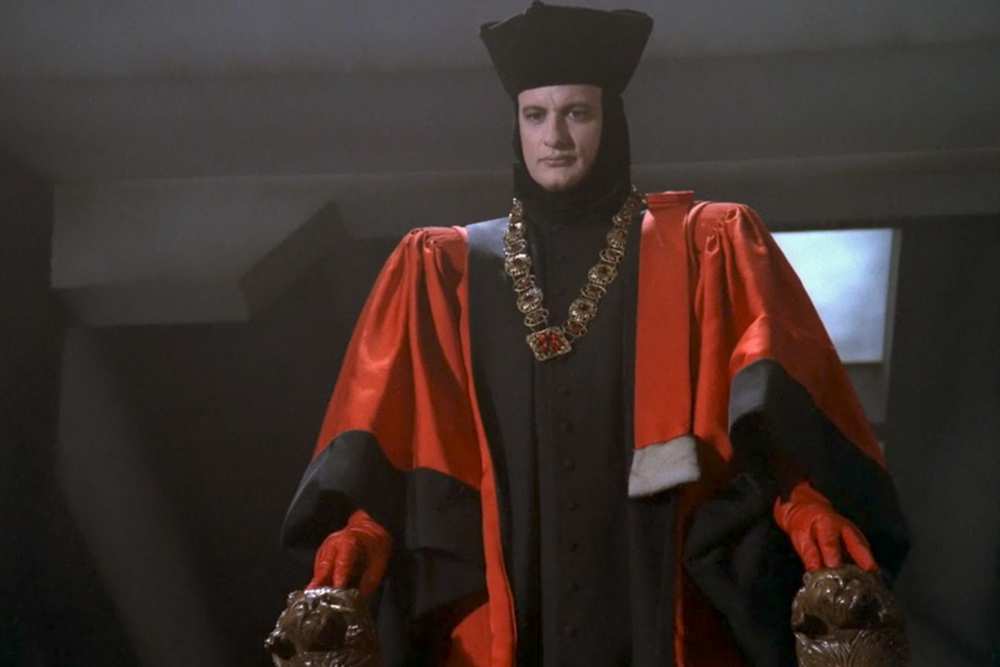
Simultaneously terrifying and witty, Q is a seemingly supernatural being who pops up on the USS Enterprise periodically to play tricks on the crew. Some of his memorable actions include giving Q-like powers to a member of the Enterprise (arguing that humans always love learning), and putting humanity on trial for its past crimes while wearing period uniforms from over the centuries. Q, however, isn't all trickster. Alongside his antics, he does warn humanity about the approach of the Borg, which is trying to assimilate all species into a collective. [The Evolution of 'Star Trek' (Infographic)]
5. Tamarian ("Star Trek: The Next Generation," 1987-1994)
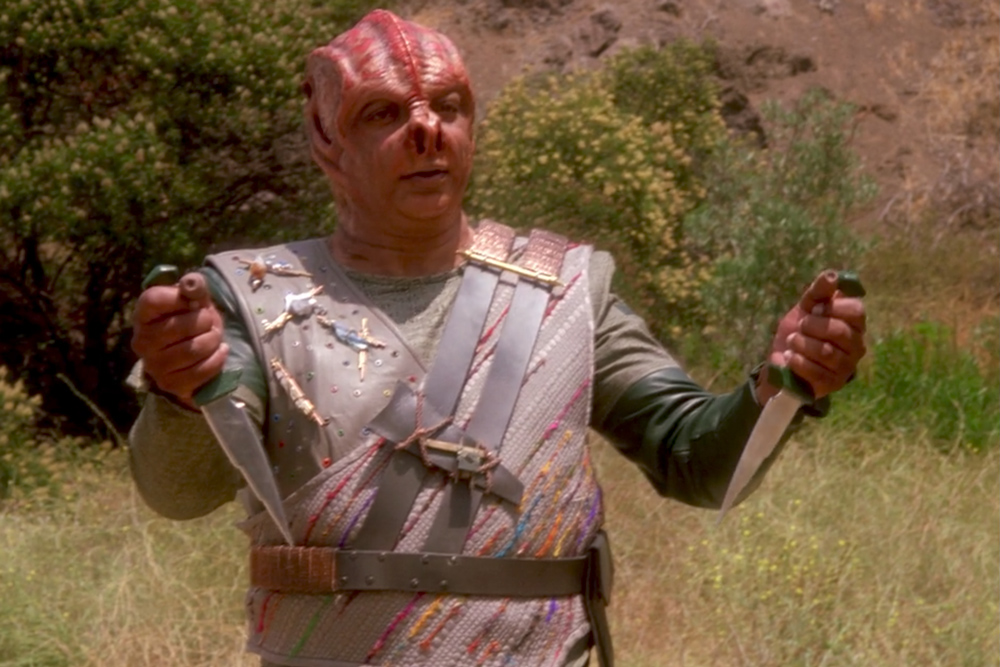
This species is a tongue-twister for the usual translators that Starfleet officers carry. While the translators can literally tell us what the Tamarians are saying, it's hard to understand what is going on because the species is speaking in metaphors. (Some examples from Memory Alpha: "Temba, his arms wide/open," which means a gift, or "the river Temarc in winter," which refers to the need for silence.) In the episode "Darmok," Capt. Jean-Luc Picard must learn to communicate with a Tamarian quickly before they are both killed by a hostile beast.
6. Crystalline Entity ("Star Trek: The Next Generation," 1987-1994)
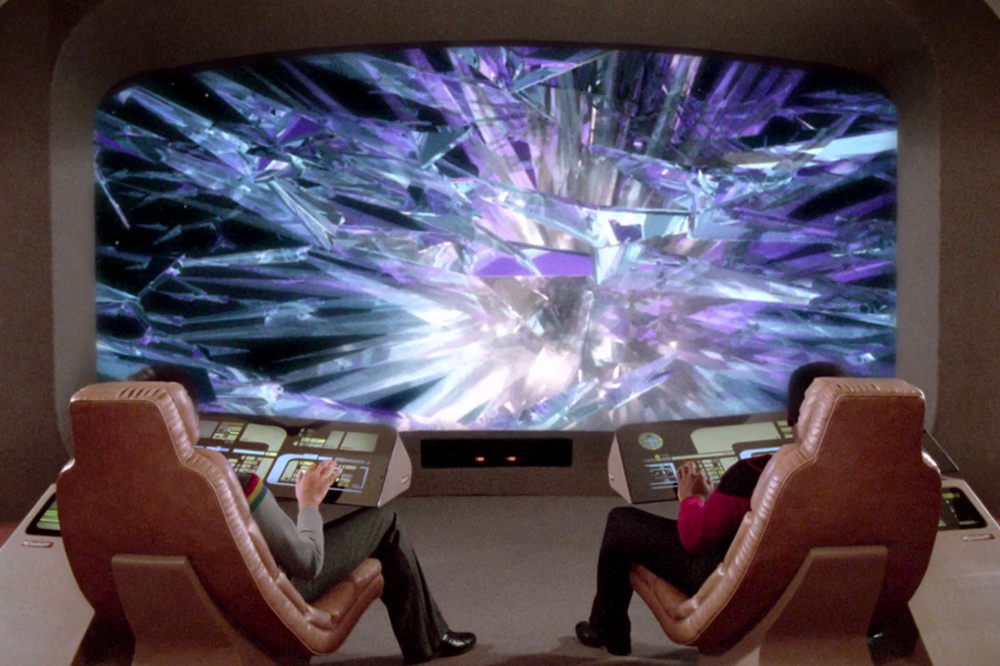
This alien goes in the "beautiful but deadly" category, as the crystalline entity was breathtaking to watch in space — it looked a bit like a snowflake, or small and shiny diamonds. However, the entity had a nasty side to it: It could quickly devour all life in its wake. The USS Enterprise finally defeated the entity by sending graviton pulses that eventually broke it into pieces. But sadly, the crew couldn't stop the pulses in time when they realized the creature might be trying to communicate with them.
7. Changeling ("Star Trek: Deep Space Nine," 1993-1999)
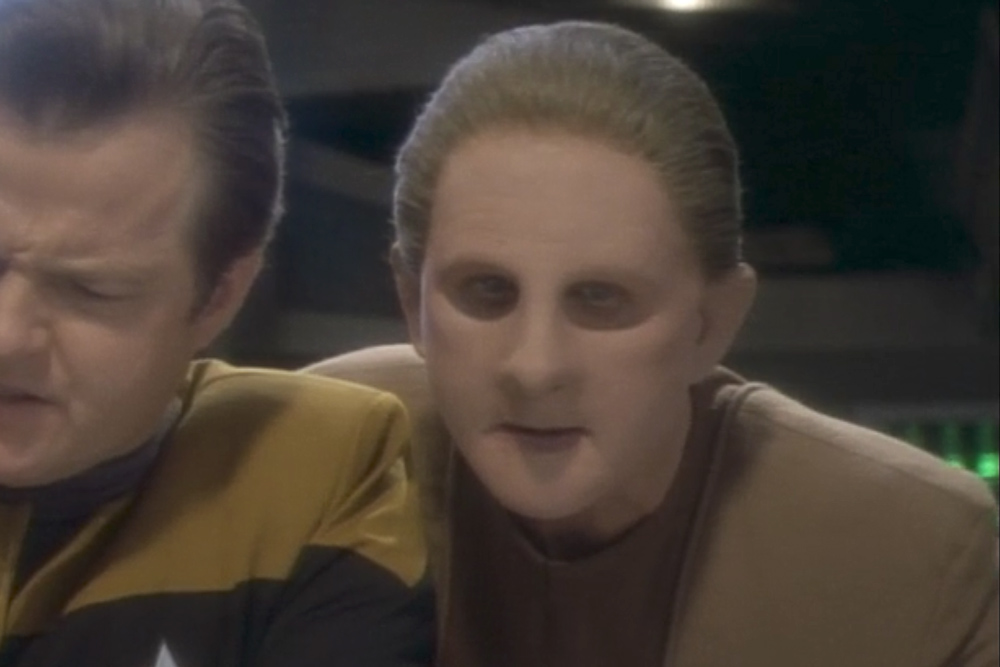
Fans of the series will instantly remember changelings, as their numbers included one of the series' main characters — Odo, the sarcastic security officer aboard the space station Deep Space 9. Changelings were made up of an orange liquid that in the "Star Trek" universe is technically referred to as a "morphogenic matrix." Changelings were able to morph into pretty much anything they wanted to, including inanimate objects or even to resemble humans. [Love of 'Star Trek' Inspires Highly Illogical Careers]
8. Jem'Hadar ("Star Trek: Deep Space Nine," 1993-1999)
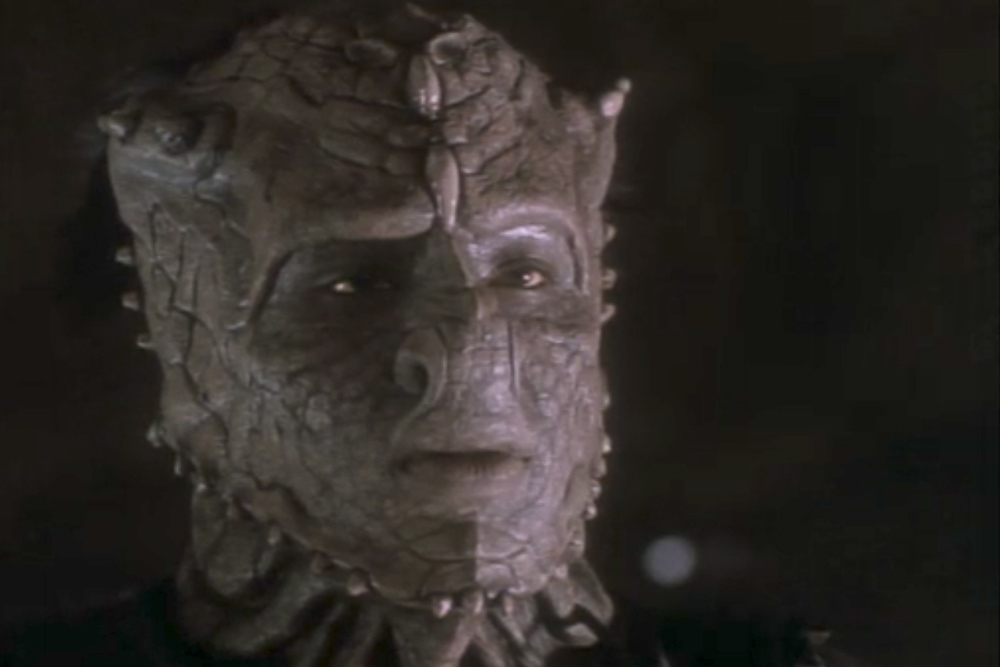
Jem'Hadar were one of a few "Star Trek" aliens with very different life cycles than humans. In their case, they were created in "birthing chambers" and were able to reach maturity in just three days. They also fed on a drug called Ketracel-white, which contained an enzyme they needed to survive. That enzyme was deliberately withheld during birthing by the Vorta, who created the Jem'Hadar; this gave the Vorta power over the Jem'Hadar and a captive economy for distributing the drug.
9. Trill ("Star Trek: Deep Space Nine," 1993-1999)
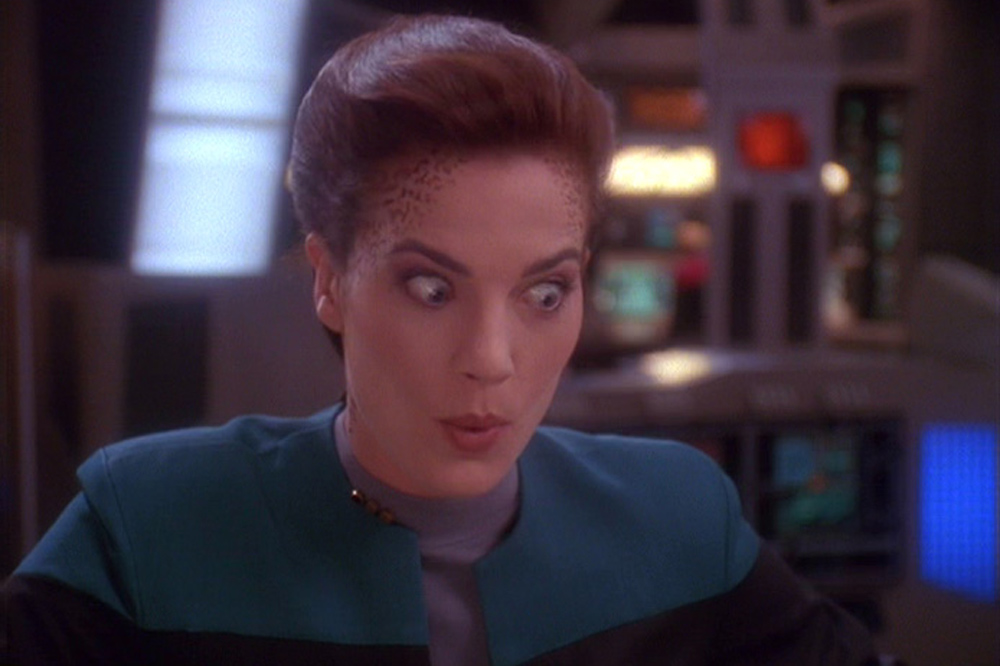
A main character on "Deep Space Nine" was from the Trill species — Jadzia Dax. Most of the Trill were fairly unremarkable, but there were a small number (including Dax) who lived with a symbiont inside their bodies. This symbiont was intelligent, but required a host organism to survive; it was common to transfer symbionts to young bodies when the older host organism was close to death. This meant that in the case of Dax, the symbiont transferred from an older man to a younger woman, prompting surprise from an old friend, Capt. Benjamin Sisko, the first time he met the younger Dax on Deep Space 9.
10. Hirogen ("Star Trek: Voyager," 1995-2001)
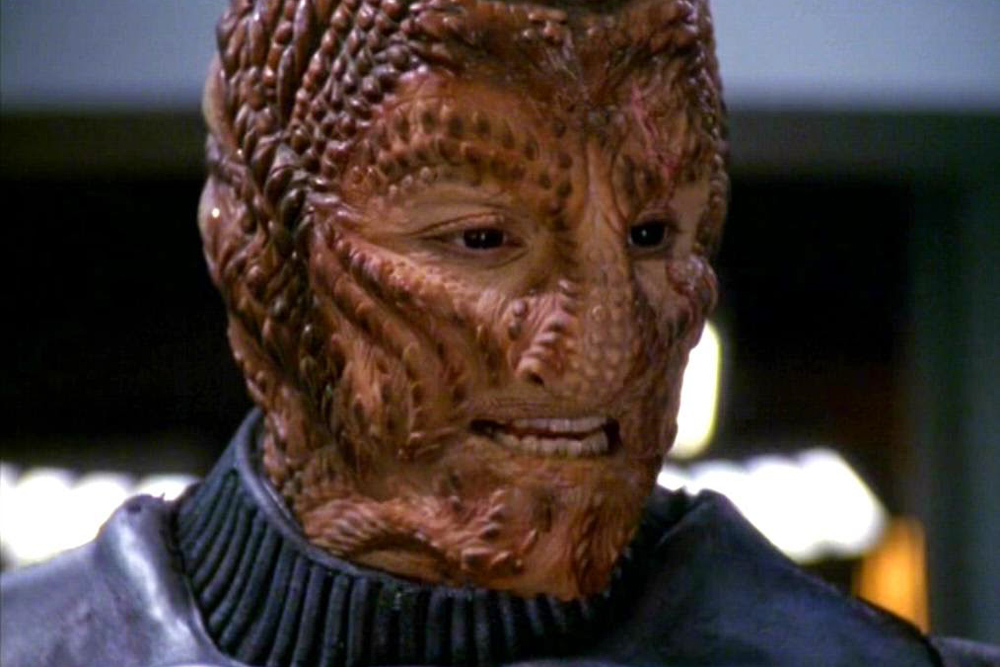
This alien was a brutal enemy of anything in the "Star Trek" universe, simply because the Hirogen consider themselves the dominant species and anything they run across as prey. Their entire culture was focused on hunting down other species, and they had the ability (if required) to break down bones and muscle tissue to eat the prey. Not someone you'd want to invite to dinner.
Join our Space Forums to keep talking space on the latest missions, night sky and more! And if you have a news tip, correction or comment, let us know at: community@space.com.
Get the Space.com Newsletter
Breaking space news, the latest updates on rocket launches, skywatching events and more!

Elizabeth Howell (she/her), Ph.D., was a staff writer in the spaceflight channel between 2022 and 2024 specializing in Canadian space news. She was contributing writer for Space.com for 10 years from 2012 to 2024. Elizabeth's reporting includes multiple exclusives with the White House, leading world coverage about a lost-and-found space tomato on the International Space Station, witnessing five human spaceflight launches on two continents, flying parabolic, working inside a spacesuit, and participating in a simulated Mars mission. Her latest book, "Why Am I Taller?" (ECW Press, 2022) is co-written with astronaut Dave Williams.
